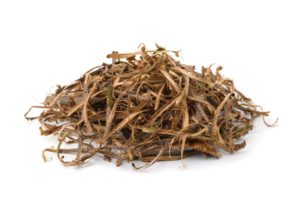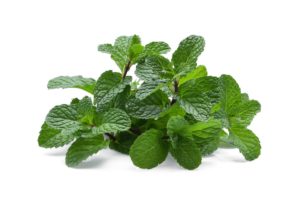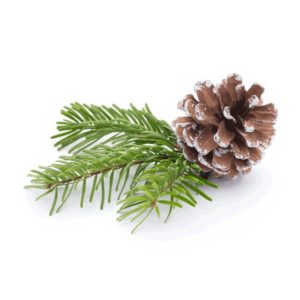The average adult circulates 8 liters of air every minute through their respiratory system, which adds up to 11,000 liters every single day. That is the equivalent of 70 full bathtubs each day!
So, if our bodies are working hard to keep breathing properly, what can we do to help?
Turns out, a natural way to support our respiratory health is much closer than we think — right under our noses in fact.
Recent research shows that essential oils found in fragrance blends not only support respiratory health but can alleviate symptoms caused by irritants and chemicals floating around us. Prolitec partners with experts such as Aromatherapy Associates London to incorporate these natural essential oils into our scenting services.
Let’s explore some of the ingredients that help us breathe just a little easier.
Give Your Immune System a Boost
 If you are looking for a natural ingredient known to have a wide range of health benefits – look no more. Ho Wood is rich with natural components such as linalool that are antimicrobial and immune boosting. In fact, lab studies show that linalool is effective in suppressing the growth of certain bacteria and fungi. Some research even suggests that linalool has potential for use in cancer therapy and reduction in tumor growth.
If you are looking for a natural ingredient known to have a wide range of health benefits – look no more. Ho Wood is rich with natural components such as linalool that are antimicrobial and immune boosting. In fact, lab studies show that linalool is effective in suppressing the growth of certain bacteria and fungi. Some research even suggests that linalool has potential for use in cancer therapy and reduction in tumor growth.
Decongest with Reinforcemints
 Toss out the nasal spray for a more natural solution. We have all suffered from a stuffed-up nose caused by seasonal allergies or illnesses, but the scent of peppermint can have you breathing a sigh of relief.
Toss out the nasal spray for a more natural solution. We have all suffered from a stuffed-up nose caused by seasonal allergies or illnesses, but the scent of peppermint can have you breathing a sigh of relief.
This popular ingredient’s refreshing odor comes from menthol, which is found to relieve nasal congestion by improving air flow.
Enhance Your Scents of Clean
 Pining for a natural solution to combat bacteria that causes respiratory illness? Recent academic studies have proved what generations of Americans mopping their floor have known – pine cleans! Certain types of pine have antiseptic properties that aid against bacteria. And it’s not limited to Pine Sol for your floors. Austrian Pine essential oil is a known natural antiseptic for the respiratory system. Current studies are researching the positive efficacy of pine essential oils against such daunting respiratory illnesses as Streptococcus pneumoniae. Although this research is still in its infancy, there’s no question as to why this ingredient is used in aromatherapy.
Pining for a natural solution to combat bacteria that causes respiratory illness? Recent academic studies have proved what generations of Americans mopping their floor have known – pine cleans! Certain types of pine have antiseptic properties that aid against bacteria. And it’s not limited to Pine Sol for your floors. Austrian Pine essential oil is a known natural antiseptic for the respiratory system. Current studies are researching the positive efficacy of pine essential oils against such daunting respiratory illnesses as Streptococcus pneumoniae. Although this research is still in its infancy, there’s no question as to why this ingredient is used in aromatherapy.
Breathe Easy
 Take a deep breath with the help of eucalyptus, a popular ingredient found in popular over-the-counter cough medications. Native to Australia, eucalyptus oil is known to aid breathing due to its “cooling sensation,” which can come in handy when battling a persistent cough and stuffed-up nose. Studies also suggest that it could also have antibacterial properties against upper respiratory infections.
Take a deep breath with the help of eucalyptus, a popular ingredient found in popular over-the-counter cough medications. Native to Australia, eucalyptus oil is known to aid breathing due to its “cooling sensation,” which can come in handy when battling a persistent cough and stuffed-up nose. Studies also suggest that it could also have antibacterial properties against upper respiratory infections.
Whether you want to support your respiratory system or just enjoy a relaxing scent, essential oils found in fragrance blends can allow you to breathe easier all day, every day.
———————–
Cited Sources:
Lungs and How They Fuel Our Bodies With Oxygen. (2017, April 24). Retrieved from https://www.nationalgeographic.com/science/health-and-human-body/human-body/lungs/
How much oxygen does a person consume in a day?: Air Quality. (n.d.). Retrieved from https://www.sharecare.com/health/air-quality/oxygen-person-consume-a-day
Duman, A. D., Telci, I., Dayisoylu, K. S., Digrak, M., Demirtas, I., & Alma, M. H. (2010). Evaluation of Bioactivity of Linalool-rich Essential Oils from Ocimum basilucum and Coriandrum sativum Varieties. Natural Product Communications, 5(6). doi: 10.1177/1934578×1000500634
Chang, M.-Y., & Shen, Y.-L. (2014, May 22). Linalool exhibits cytotoxic effects by activating antitumor immunity. Retrieved from https://www.ncbi.nlm.nih.gov/pmc/articles/PMC6271996/
Burgess, L. (2019, February 27). Essential oils for sinus congestion: Best oils and how to use them. Retrieved from https://www.medicalnewstoday.com/articles/324570#peppermint
Figure 2f from: Irimia R, Gottschling M (2016) Taxonomic revision of Rochefortia Sw. (Ehretiaceae, Boraginales). Biodiversity Data Journal 4: e7720. https://doi.org/10.3897/BDJ.4.e7720. (n.d.). doi: 10.3897/bdj.4.e7720.figure2f
Vainio-Kaila, T., Kyyhkynen, A., Rautkari, L., & Siitonen, A. (2015). Antibacterial Effects of Extracts of Pinus sylvestris and Picea abies against Staphylococcus aureus, Enterococcus faecalis, Escherichia coli, and Streptococcus pneumoniae. BioResources, 10(4). doi: 10.15376/biores.10.4.7763-7771
Salari MH;Amine G;Shirazi MH;Hafezi R;Mohammadypour M; (n.d.). Antibacterial Effects of Eucalyptus Globulus Leaf Extract on Pathogenic Bacteria Isolated From Specimens of Patients With Respiratory Tract Disorders. Retrieved from https://pubmed.ncbi.nlm.nih.gov/16441463/
Wong, C. (2019, November 23). The Health Benefits of Eucalyptus Oil. Retrieved from https://www.verywellhealth.com/steam-inhalation-with-eucalyptus-essential-oil-88169
Burrow, A., Eccles, R., & Jones, A. S. (1983). The effects of camphor, eucalyptus and menthol vapour on nasal resistance to airflow and nasal sensation. Retrieved from https://www.ncbi.nlm.nih.gov/pubmed/6613544
Active Ingredients. (n.d.). Retrieved from https://www.aromatherapyassociates.com/usa/our-philosophy/active-ingredients
———————–
About the Author
Heather enjoys delving into research exploring the ways fragrance impacts people in their daily lives. She is a VP at Prolitec, a global provider of ambient scenting, and is working towards her MBA at Tulane University in New Orleans.
When not studying the fascinating ways fragrance interacts with the world of business, Heather renovates historic houses and gets her hands dirty with her non-profit ceramics arts studio.

